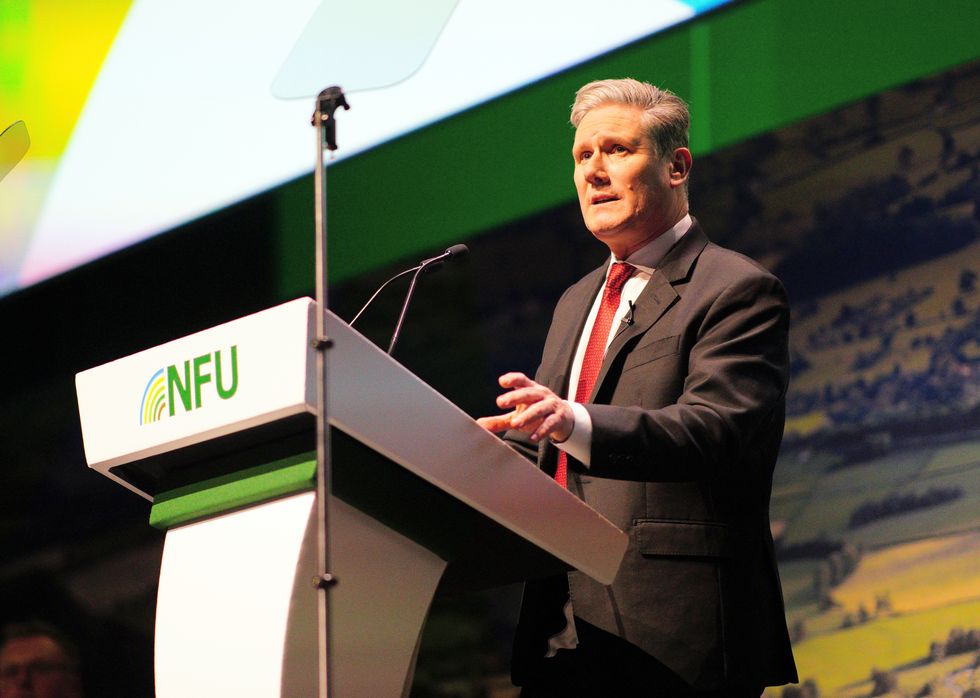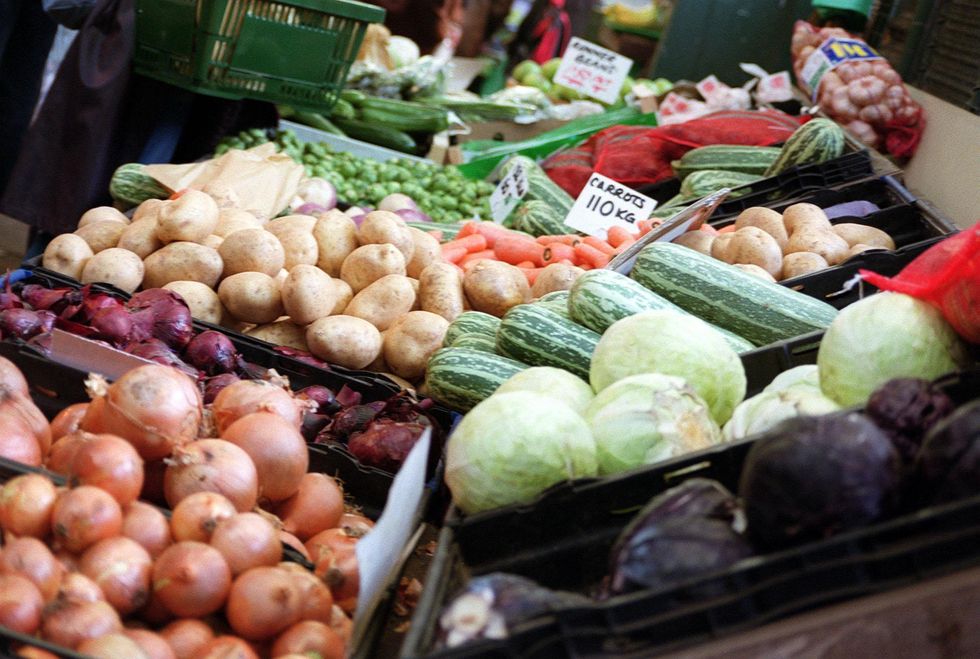Labour's expensive 'green' food miles plan is WORSE for emissions - analysis by Tom Harwood

Starmer speaking during the National Farmers' Union Conference | Ben Birchall

Sir Keir Starmer announced his new target in a bid to win over farmers at the next election
Don't Miss
Most Read
Latest
Sir Keir Starmer has pledged that 50 per cent of all food bought by the public sector will be produced locally and sustainably under a Labour government in a protectionist plan marketed as an environmentally friendly policy.
Speaking at the National Farmers Union conference in Birmingham yesterday, the Labour leader announced the new target in a bid to win over farmers at the next election.
But some economists think Sir Keir has got his policy muddled up.
Is it that green after all, or might it in fact lead to higher CO2 emissions than the status quo?
50 per cent of all food bought by the public sector will be produced locally and sustainably under Starmer's plans.
MAYOM MAGDALENA MAYO (50/50)
The economists at the Adam Smith Institute have criticised Labour's plan, saying the policy is "ineffectual, tokenistic, and makes the world poorer."
Global analysis of food emissions shows that the proportion of emissions coming from food miles, that is transporting the food around the world, make up a tiny proportion of their environmental impact.
For Rice, food miles are just 2.1 per cent of emissions.
For fish, food miles make up 1.8 per cent. With Beef, it's 0.5 per cent. And Chocolate, just 0.2 per cent, despite the long distances travelled.
This starts to make sense when you think about the other factors, from amount of land used, fertiliser, or indeed need for greenhouses and the like.
It is far more environmentally friendly to import a lemon from a warm part of the world in winter, than it is to run expensive greenhouses in Britain.
Better for the environment, and cheaper for British consumers too.
Crunching the data, so called 'food miles' appear to be overwhelmingly practically irrelevant to the environmental impact of our food. How it is made is far more impactful than how far it travels.
So perhaps we should all think twice before describing this new cost-increasing target as something that is 'green'.











